#pierce hammond
Text



















Steve Lund as Pierce Hammond in Christmas Bedtime Stories (2022) sneak peek Directed by Alysse Leite-Rogers 2/ 2
#steve lund#pierce hammond#christmas bedtime stories#nocticola art#female directors#hallmark movies#Alysse Leite Rogers
1 note
·
View note
Text
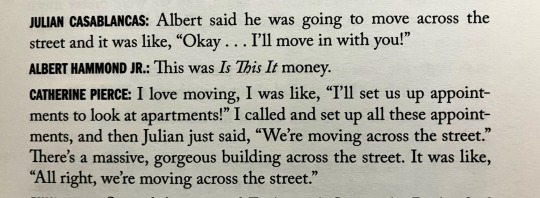
— Lizzy Goodman, Meet Me In The Bathroom
#the strokes#julian casablancas#albert hammond jr#catherine pierce#lizzy goodman#meet me in the bathroom#literature#lycheejelly1.txt
12 notes
·
View notes
Text

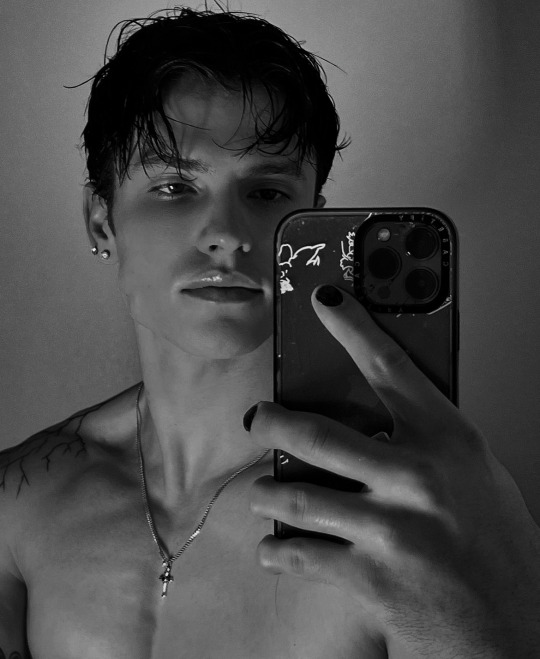
43 notes
·
View notes
Text


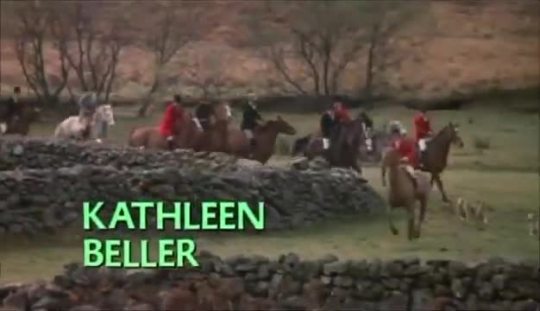
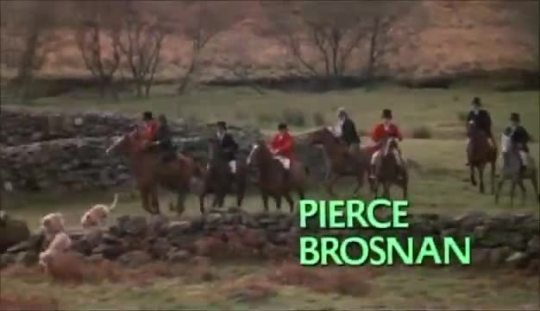
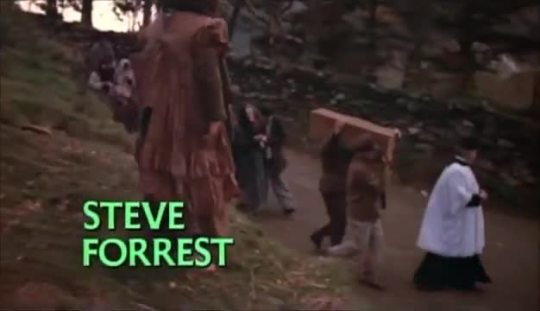
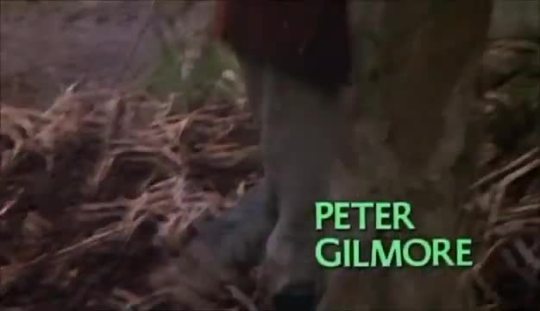

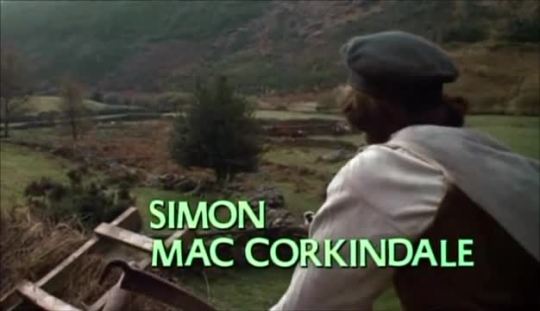
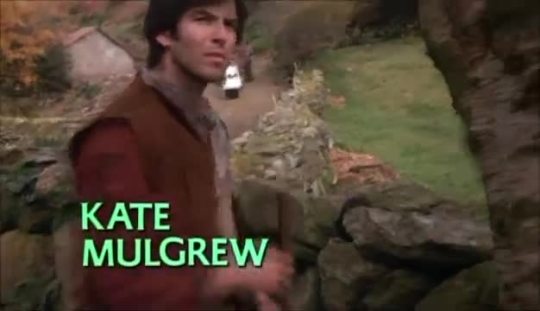
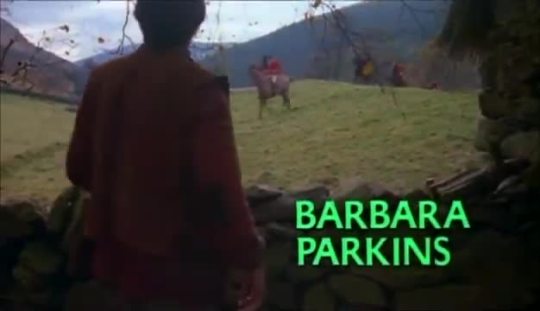
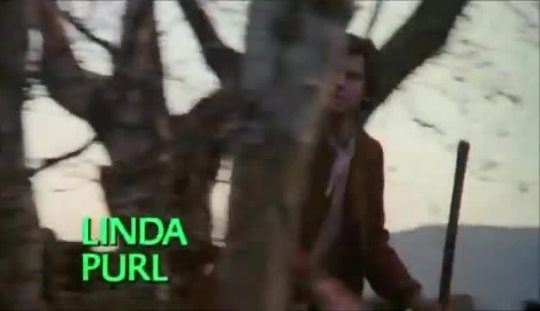
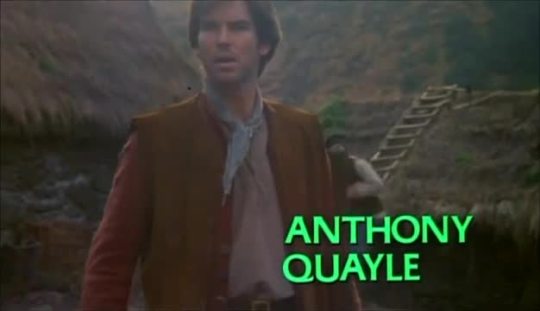

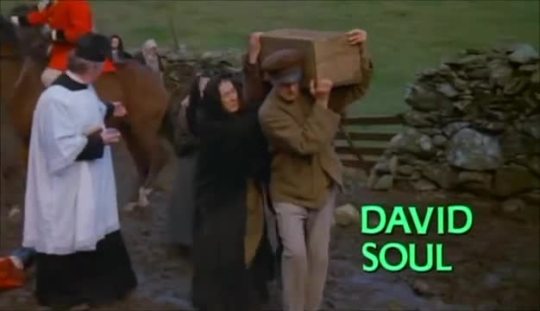

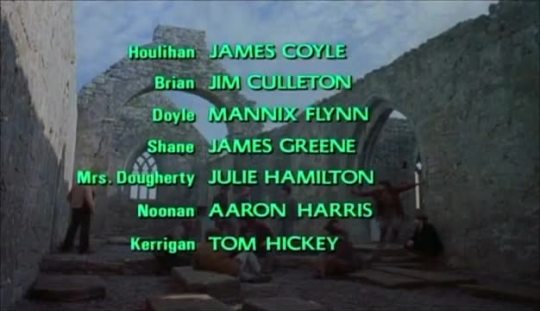
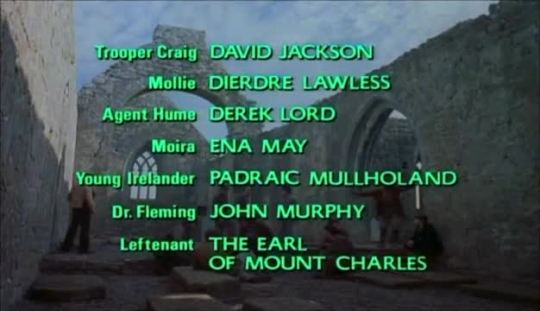
The Manions of America - ABC - September 30, 1981 - October 2, 1981
Drama (3 episodes)
Running Time: 360 minutes
Stars:
Kathleen Beller as Maureen O'Brian
Pierce Brosnan as Rory O'Manion
Steve Forrest as James Kent
Peter Gilmore as Jim O'Brien
Nicholas Hammond as Padric O'Manion
Simon MacCorkindale as David Clement
Kate Mulgrew as Rachel Clement
Barbara Parkins as Charlotte Kent
Linda Purl as Deirdre O'Manion
Simon Rouse as Eamon Fleming
David Soul as Caleb Staunton
Anthony Quayle as Lord Montgomery
#The Manions of America#TV#Drama#ABC#1981#Kathleen Beller#Pierce Brosnan#Steve Forrest#Peter Gilmore#Nicholas Hammond#Simon MacCorkindale#Kate Mulgrew#Barbara Parkins#Linda Pearl#Simon Rouse#David Soul#Anthony Quayle
8 notes
·
View notes
Photo



Oh no D:
#simblr#ts3#sims 3#the sims 3#sims#maeve bc#chase ramos#ommlette-du-plumbob#pierce whitlock#simside#olive little#dragonplumbobs#flynn hammond#plumbob95
21 notes
·
View notes
Text

Old Rexy meets Pierce
#jurassic park#jurassic world evolution#camp cretaceous#jurassic world#rexy#tyrannosaurus rex#jurassic world fallen kingdom#fallen kingdom#pierce#kentrosaurus#hammond collection#dinosaurs#jurassic world dominion#jurassic world mattel#jurassic park mattel#paleo#dinosaur toys#paleontology#jurassic world hammond collection#toy photography
6 notes
·
View notes
Text
The Iron Claw (2023) Review
The truly tragic and incredible true story of the Von Erich brothers and the history they made within the competitive world of professional wrestling in the early 1980s.
⭐️⭐️⭐️⭐️⭐️
Continue reading The Iron Claw (2023) Review
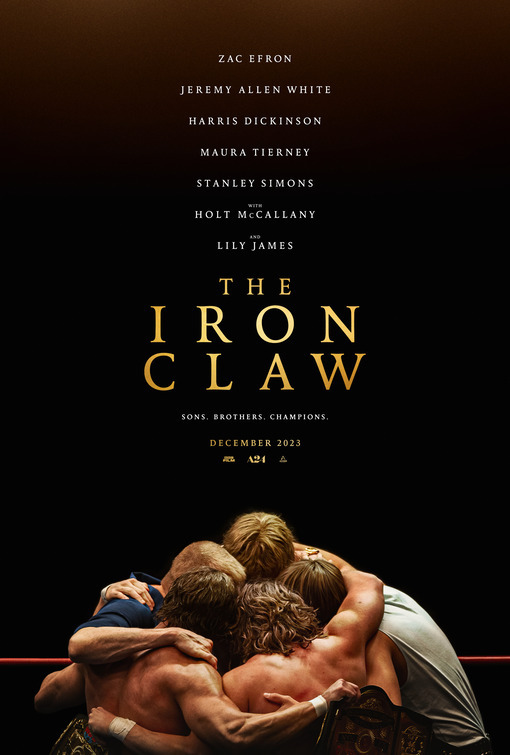
View On WordPress
#2023#Aaron Dean Eisenberg#Biography#Brady Pierce#Cazzey Louis Cergehino#Chavo Gurrero Jr.#Cinema#Drama#Garrett Hammond#Grady Wilson#Harris Dickinson#Holt McCallany#Jeremy Allen White#Jim Gleason#Jullian Dulce Vida#Kevin Anton#Leo Franich#Lily James#Maura Tierney#Michael Harney#Michael Papajohn#Review#Ryan Nemeth#Sam Franich#Scott Innes#Sean Durkin#Sport#Stanley Simons#The Iron Claw#Von Erich
0 notes
Text

[ID: A digital drawing of Lynne Hammond and Celia from The Magnus Archives drawn from the shoulders up. Both are slim Korean women with light skin. Lynne has long black hair in a high ponytail with a middle part, and she is wearing a white turtleneck, gold hoop earrings, industrial piercings, and a necklace, and winged eyeliner. Celia has a fully shaved head and patchy eyebrows, dark circles under her eyes, and she is wearing a purple scarf and dull green coat, and no jewelry. Lynne is looking at the viewer blankly, and Celia is smiling very anxiously up and to the side. Lynne is labelled as "Lynne Hammond" and Celia is labelled with "Celia" in quotes. The background is a grainy blur of green and purple and there is a faint overlay of pencil sketch lines over the whole image. end ID]
~~~~
finally decided to draw my versions of Lynne and "Celia" pre-protocol era. i already had a mental image of Lynne so i Refused to change it cuz i think it'd be fun if she was Very Different after her factory reset aksjhakdhj. i call her "is comp-femme a thing" and then ofc "celia" is. looking rough <3 and then she had her butch awakening in the protocol verse and that's my regular celia design YAY <3
#fg's art#the magnus archives#the magnus protocol#tma#tmagp#celia ripley#lynne hammond#the id says archives because they are technically from tma first so i hope that's not confusing#if so let me know!!#also hope you like the funky effects courtesy of my traditional sketch i refused to completely leave behind in the final image <3
346 notes
·
View notes
Note
Do you have a list of Toyfolk inhabitants?
The Misfits:
Charles "Charlie" Scopp
Dolores "Dolly" Conley
Eleanor
Gabriel "Gabe" Bianco
Jennifer "Jen " Spagnoletti
Maria Martinez
Melissa "Mel" Ray
Pauline "Paul" Carson
Tabitha "Tammy" Yokoi
André?
Others
Apalala
Brendan
Carol
Flo
Morgan
Cadencia Martinez?
Floretta
Phineas Barnum
Romeo "Candlewick"
Hans
Dorothy "Dollie"
"Moonracer"
Anabel
Ayane Takahashi
Eli "Spots" Banas
Hanuman
Hensley
Molly
Octavia
Silus Zelinski
Suzanne "Zanny" 🏥
"Steadfast Tin Soldier"
"Paper Ballerina Doll"
"Babs"
Fan Characters (this list is incomplete)
Alfons
Alma Irons
Amy "Amy Sh-" Shipperton
Artie
Aster
Barnaby Alberto Alexander
Beatrice "Beau" Pierceson
Bene MaCrane
Bill Stanton
Billie "B.B." Oats
Bobbi
Buster Sweetwater
Butch Franklin
Camille "the Professor" Basset
Carlos
Catherine Hammond
Charlie
Conrad Fothergill
Danzel "Dizzy"
Darcy
Davina & Bronnie
Emit
Eddy/Emi
Elizabeth "Liz" 🏥
Emma
Ezekiel "Zeke" Bridgman
Dr. Ernst 🏥
Fanny 🏥
Freddy "Eddy"
Ganda Green
Georgina George
Gretchen
Gwendoline "Gwen"
Heather Rigger
Horace Parker
Iris Nagi
Isabel "Izzy"
Jane Doe
Janice Ridgewalker
Jason Robbs
Jayden Storm
Jennifer
Jester
Jiro Kanedo
Julia, Thomas, James, and Andrea
Kelly
Kelsey Warren
Dr. Lacey Weaver 🏥
Lux Newton
Levy Atan
Lysandra Atwood-Terpsichore
Madeline
Madilyn "Maddie" Hoek
Mal
Marigold Hartford
Margaret "Margie" Bleeker
Margie
Markley Burke
Mars
Marvin
Mary Annette
Maximilian
Melody
Mike
Milo Otis
Min Hu
Monika
Naomi
Nessa
Nonna Macaw
Odelia Pines
Paul Higgins
Peter Rangers
Petra
Pierce Spotson
Dr. Quentin "Q.T." Darling 🏥
Rachel Thompson
Ralph Patrickson
Richard Tarkin
Rocky
Rodney
Roza Egorova
Ryder Cochran
Sam Greenway
Sandy
Scharlachrot
Sheila
Stanley "Stella" Olson
Sylvik
Taylor Seekins
Terra
Thomas Bower
Tracy Corbett
Walter
41 notes
·
View notes
Text















Steve Lund as Pierce Hammond in Christmas Bedtime Stories (2022) sneak peek Alysse Leite-Rogers 1/ 2
#steve lund#pierce hammond#christmas bedtime stories#nocticola art#female directors#Alysse Leite Rogers#hallmark movies
1 note
·
View note
Text
THEY GAVE HAMMOND PIERCED N1PPLES?!?!?!

#I KNOW ITS BASED ON A DIABLO THING BUT OH MY GOD PUT THOSE THINGS AWAY#overwatch#overwatch 2#wrecking ball#hammond#overwatch halloween#overwatch spoilers#overwatch season 7
103 notes
·
View notes
Text
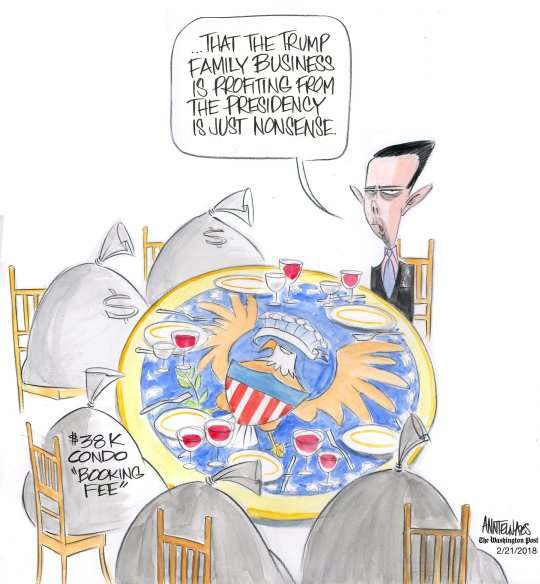
Ann Telnaes :: @AnnTelnaes : "Remember, the Trump company is run by the 2 adult sons who are also involved politically with the GOP and using the presidency for financial gain"
* * * *
LETTERS FROM AN AMERICAN
August 4, 2024
Heather Cox Richardson
Aug 05, 2024
To some fanfare, Vice President Kamala Harris’s campaign today launched Republicans for Harris, which will kick off with events this week in the swing states of Arizona, North Carolina, and Pennsylvania. Their goal, campaign officials told Zeke Miller of the Associated Press, is to make it easier for Republican voters put off by Republican presidential nominee Donald Trump to back Democratic presidential nominee Harris. Curiously, though, in their embrace of the nation’s growing democratic coalition, Republicans crossing the aisle in 2024 are returning to their party’s origins.
The Republican Party itself began as a coalition that came together to stand against an oligarchy whose leaders were explicit about their determination to overthrow democracy. As wealth had accumulated in the hands of a small group of elite southern enslavers, those men had turned against American democracy. “I repudiate, as ridiculously absurd, that much-lauded but nowhere accredited dogma of Mr. Jefferson, that ‘all men are created equal,’” South Carolina senator James Henry Hammond said.
Enslaver George Fitzhugh of Virginia rejected the other key principle of the Declaration of Independence: that everyone has a right to a say in the government under which they live. “We do not agree with the authors of the Declaration of Independence, that governments ‘derive their just powers from the consent of the governed,’” he wrote in 1857. “All governments must originate in force, and be continued by force.” There were 18,000 people in his county and only 1,200 could vote, he said, “[b]ut we twelve hundred…never asked and never intend to ask the consent of the sixteen thousand eight hundred whom we govern.”
Enslavers like Hammond and Fitzhugh believed that some people were better than others and had the right—and the duty—to impose their will on everyone else. If they did not, men like Fitzhugh believed, poor men and marginalized people would insist on being equal, receiving the value of their work and living as they wished.
Under this dangerous system, Fitzhugh wrote, “society is insensibly, and often unconsciously, marching to the utter abandonment of the most essential institutions—religion, family ties, property, and the restraints of justice.” He defended human enslavement as the highest form of society, since paternalistic Christian masters would care for their wards, preventing a world of “No-Government and Free Love.”
The elite enslavers came to control the Democratic Party and, through it, the Senate, the White House, and the Supreme Court. The Whig Party tried for decades to make peace with the increasingly extremist southern Democrats, and as they did so, the party splintered, with those opposed either to human enslavement or the spread of human enslavement to the West—those were actually not the same thing—creating their own upstart parties.
And then, in 1854, with the help of Democratic president Franklin Pierce, elite enslavers managed to push through the Senate a bill to organize the two giant territories of Kansas and Nebraska in such a way that they would be able to spread their system across the American West. The new slave states that would form there would be able to join forces in the House of Representatives with the southern slave states to outvote the northern states that rejected enslavement. Without a brake on their ambitions, the enslavers would be able to spread their worldview across the nation. From their position at the head of the United States, they expected to spread their slave-based economy around the globe.
But their triumph was not to be. With the bill under debate in the Senate, Democrat Amos Tuck of New Hampshire—the state Pierce hailed from—wrote: “Now let Frank Pierce consummate his treason, if he dare. There is a North, thank God!... We have…rebuked treason, condemned the Nebraska Bill, and discarded the President.” Tuck noted that the Democrats were losing “their best men. I think they (the leaders) can never recover from the consequences of having tried to betray their country.” He looked forward to “bringing out in future the true characteristics of our people, so long belied by the most unworthy demagogues….”
Tuck was not alone. The day after the House of Representatives began to debate the Kansas-Nebraska bill, Whig representative Israel Washburn of Maine invited about thirty antislavery representatives to meet at the rooms of his friends, Massachusetts representatives Thomas D. Eliot and Edward Dickinson (whose talented daughter Emily was already writing poetry), in Mrs. Crutchett’s select boardinghouse in Washington, D.C. The men who called the meeting were northern Whigs, and the men who came to it entered the elegant room as members of a variety of political parties, but they all left committed to a new northern organization that would stand against the spread of slavery into the West. They called themselves “Republicans,” hoping to invoke Thomas Jefferson—who had called his own political party Republican—and recall the principles of the Declaration of Independence.
When the House passed the bill on May 22 and Pierce signed it on May 30, the anti-Nebraska movement took off. Conventions across the North called upon all free men to fight together “for the first principles of Republican Government and against the schemes of aristocracy, the most revolting and oppressive with which the earth was ever cursed or man debased.” There were 142 northern seats in the House of Representatives; in the midterm elections that year, voters put “anti-Nebraska” congressmen in 120 of them. Anti-Nebraska coalitions elected 11 senators and swept Democrats out of state legislatures across the North.
In 1855, Pierce insisted that Americans opposing the spread of human enslavement were trying to overturn American traditions, insisting that the United States was a white man’s republic and that the Founders had intended to create a hierarchy of races.
But those coming together to oppose enslavement denounced Pierce’s recasting of American history as “False all through!” As for the Founders, Chicago Tribune editor Joseph Medill wrote, “their ‘one guiding thought,’ as they themselves proclaimed it, was the inalienable right of ALL men to Freedom, as a principle.”
When Democrats tried to call those coming together as Republicans “radicals,” rising politician Abraham Lincoln turned the tables by standing firm on the Declaration of Independence. “[Y]ou say you are conservative—eminently conservative—while we are revolutionary, destructive, or something of the sort,” he said, addressing the Democrats who remained determined to base the United States in enslavement.
“What is conservatism? Is it not adherence to the old and tried, against the new and untried? We stick to, contend for, the identical old policy on the point in controversy which was adopted by ‘our fathers who framed the Government under which we live’; while you with one accord…spit upon that old policy, and insist upon substituting something new…. Not one of all your various plans can show a precedent or an advocate in the century within which our Government originated.”
When voters elected Lincoln president, the fledgling Republican Party turned away from a government that catered to an oligarchy trying to overturn democracy and instead reinvented the American government to create a new, active government that guaranteed to poorer men the right to be treated equally before the law, the right to a say in their government, and access to resources that had previously been monopolized by the wealthy.
The present looks much like that earlier moment when people of all different political backgrounds came together to defend the principles of the United States. In today’s moment, when someone like J.D. Vance backer billionaire Peter Thiel says, “Democracy, whatever that means, is exhausted,” and the Republicans’ Project 2025 calls for replacing democracy with Christian nationalism, it makes sense for all people who care about our history and our democratic heritage to pull together.
Today, Olivia Troye, who served on national security issues in the Trump White House, said, “[W]hat is happening here with the Republican Party… is dangerous and extreme. And I think we need to get back to the values of…observing the rule of law, of standing with our international allies and actually providing true leadership to the world, which is something that Kamala Harris has exhibited during the Biden Administration.”
As Lincoln recalled, when people in his era realized that the very nature of America was under attack, they “rose each fighting, grasping whatever he could first reach—a scythe—a pitchfork—a chopping axe, or a butcher's cleaver. We…are rapidly closing in…. “ And, he said, “When the storm shall be past,” opponents “shall find us still Americans; no less devoted to the continued Union and prosperity of the country than heretofore.”
Indeed, when the storm passed in his day, Americans found that the magnitude of the crisis they had weathered and the rise of entirely new issues meant that old party lines had fallen apart and people reorganized along entirely new ones. Famously, Lincoln’s secretary of war, Edwin Stanton, who in 1860 had worked for the election of extremist Democrat John C. Breckinridge, stood heartbroken by Lincoln’s bedside as he breathed his last and blessed him, saying: “Now he belongs to the ages.”
LETTERS FROM AN AMERICAN
HEATHER COX RICHARDSON
#Ann Telnaes#TFG#political cartoons#grifters#financial gain#corruption#GOP#Republican Party#political#US History#Heather Cox Richardson#Letters From An American#democracy#equality#wealth
11 notes
·
View notes
Text
CH 13- Goddamn Henry Wu
Prev
Why? How? Goddamn Henry Wu?
Adelaide clenched her jaw but refused to do anything else. Anything she said, anything she did would be data for him, and she wouldn’t let him have it.
It had been almost five years since they’d seen each other last, and though it was brief, Adelaide could tell he’d aged in that time. His hair was lighter, his face more defined. She didn’t want to know what happened to make it that way.
“How are you feeling?” he asked.
Adelaide stared at him. He knew how she felt. Cold. Scared. Alone. Thoroughly pissed off.
“Glad to see you survived the Sorna incident…and the San Diego incident.”
Adelaide scoffed. Of course he was glad. She would hate for such an interesting specimen such as herself to go to waste.
“Is something funny?” he asked. When she didn’t respond, he pulled up a stool and continued. “We don’t have to be enemies, Adelaide. You could be at the forefront of some very important discoveries. If we work together, we could achieve some major breakthroughs in genetics. You could be helping a lot of people.”
“Let me go.”
“I’m afraid I can’t do that.”
“If you want to work with me, let me go.”
Wu held up a clipboard, which made Adelaide flinch. He read off of it. “Dr. Marshall describes the specimen as uncooperative, flighty, and antagonistic.” He set the clipboard back down and looked her in the eye. Or at least, he tried to. Her eyes anxiously flicked away every few seconds. “So, no. I can’t let you go.”
Adelaide felt cornered. There was no way out of the box but up, and it was a long way up. Close to impossible without her hook, and definitely impossible with a giant watching. With nowhere to go, his oppressive gaze pierced through her. “You have no right to keep me here,” she said calmly. Any explosion of hers would be a win on his part. A sign of weakness.
“Oh, but I do,” he said.
Adelaide knew he wanted her to ask why, so she didn’t. He elaborated anyway.
“You belong to InGen, Adelaide.”
“I don’t belong to anyone.”
Wu rifled through the papers on his clipboard again. He detached one from the pile and set it in her enclosure as he spoke. “Recognize those faces?”
The paper was so big that it had to sit curved against the wall, but Adelaide could see it just fine. And she did recognize those faces.
“Don’t,” she said quietly. Tears pricked her eyes.
“Mae and Arlo. A miraculous result of certain…experiments done back before InGen was InGen. I don’t even think John Hammond was aware of them. See, you got me digging, Adelaide. You physically should not be able to exist. I assumed there had to be more of your species, and somebody had to have documented you at some point. You can imagine my surprise when I found out the very company I worked for was creating you! Even if it was by accident.”
“Stop it.” Unable to press herself into the corner any further, Adelaide started shaking. He was lying. He had to be.
“I won’t bore you with the logistics, but Lockwood’s endeavors into human cloning resulted in Mae and Arlo, and a few others, at first. From what I can tell, research halted when Hammond condemned Lockwood for his…‘unethical’ actions.”
“Leave. Me. Alone.” Hot tears leaked uncontrollably down Adelaide’s face.
“Your blood sample provided some intriguing results. I don’t know if they escaped or if they were let go, but they left, and they had a child. And that child is you. They were property of InGen. You are property of InGen.”
Wu reached in to remove the paper, and Adelaide lunged at his hand. She bit down into the soft skin, refusing to let go.
Wu winced and instinctively flicked his hand to get her off. Adelaide went flying and her body smacked into the back wall of her enclosure with a thump. She fell into a heap, but before she could register the pain, she lunged again.
Wu was quick enough to remove his hand with plenty of time to spare. Adelaide’s momentum caused her to fall forward onto her face, and she laid there, a broken mess. Her face was soaked with tears and Wu’s blood, and each of her bones felt like they snapped in half. Her head spun even worse to the point where she was seeing triple.
“Hammond was a good man,” Wu continued as if nothing happened. He wrapped a bandage over his hand as he spoke. “but he was a coward. He didn’t bother to consider the wider applications of Lockwood's research.”
Was a good man? In her dazed state, Adelaide blurted, “Hammond’s dead?”
“Yes.”
For the longest time, Adelaide had mixed feelings on John Hammond. He really did seem like a jolly old man with the best intentions, a curious man who loved dinosaurs and magic and wonder, but underneath it all was a greedy child. One who liked to play with fire and didn’t care what he burned down. And in that moment, all of Adelaide’s thoughts on the man became clear. She hated him. She hated him to his very core. “Good,” she said.
Wu found her response a bit amusing in a detached sense, but the part of him that still clung to Hammond’s memory, to his support and care, made his face tense up. Ignoring his personal feelings on the matter, he put on gloves, reached in, and grabbed the back of Adelaide’s gown, hoisting her into the air. It wasn’t hard, given her prone position on the ground.
Adelaide’s head screamed at her and her vision started to go in and out. She tried to focus on the giant, pale circle in front of her, on her surroundings, on his voice, on anything, but it was getting increasingly difficult.
“You’re going to do what I ask, or we will make you do what I ask, and I really don’t want to do that. You’re going to let Dr. Marshall give you a check-up, understood?”
“Nope,” she said, and she spit Wu’s blood back in his face. He flinched, and Adelaide felt her body sway lazily in the open air when he did so.
Wu clenched his jaw and abruptly set her back down in her enclosure. He really was disappointed. “We’ve given you so many opportunities to cooperate, Adelaide. I’m sorry I have to do this.”
A clear lid was placed over her cage, and Adelaide shot to her feet, but her back and legs gave way. What was he doing? Why did this box have a lid? She looked up, and she could just barely register a big hole in the ceiling. That was something she could work with. It was probably there so that she could breathe, but it was definitely big enough for her body to fit through.
Then the hole was covered by another contraption, ruining any escape attempt. Adelaide barely had time to wonder what the contraption was before it started emitting gas.
Gas ? The only gas she knew of was poison intended for rodents and bugs. That gas was bad news. Was that really how Wu was going to kill her? She couldn’t imagine why he would want to kill her, even if she was ‘uncooperative, flighty, and antagonistic’. He wanted to study her so bad. He wanted to know everything about her. And he could only gather so much from a corpse.
Regardless, Adelaide needed to get away from that gas. She ran as fast as she could to the farthest corner, limping and stumbling over herself the whole way. She pulled a piece of fabric from the nest and used it to cover her mouth as the gas creeped closer and closer.
Even through the fabric, Adelaide felt when it entered her lungs. She coughed and gasped, trying to rid her body of the poison, but it was no use. Her head bobbed with sudden drowsiness, and she used every remaining ounce of spite in her body to keep herself awake. Wu’s blurry, distorted form hovered over the cage, probably taking note of how she reacted. She couldn’t fall asleep around him. Not here. Not now. Not ever.
But the gas kept coming, and with it came stronger bouts of drowsiness. Adelaide gave it everything she had, but her body simply did not have the same determined strength as her mind. It gave in, and she blacked out.
***
Adelaide woke up with the worst pain in her neck. It felt like somebody had cut it open, repeatedly punched it, and then sewed it shut again. The pain shot down her back and up into her head so that she could hardly move.
She reached up to feel around, and a hard lump underneath her skin made her freeze. Pressing on it made the pain worse. There were also raised lines in the skin, and when she pulled her hand away, crusted blood came with it.
Borrowers didn’t need mirrors. There was no point in looking presentable when they’d just end up with knotted hair and bug guts all over their clothes later on. Adelaide didn’t need to know what she looked like. Why would she?
But then there were the seldom occasions where mirrors would be incredibly helpful. Like right now. To be able to see injuries in places that normally couldn’t be seen because a body just wasn’t meant to bend that way.
Adelaide laid in the fabric scrap pile in the corner of her cage, which meant somebody moved her unconscious body. She was pissed off alright, but probably not as much as she should have been. Whatever that gas was meant to do, she wasn’t sure, but it made her groggy and it slowed her thought process tenfold.
It was time to get up. She had to find out what was in her neck.
A giant pillar fell from the sky and interrupted this process by pinning her chest back down. If she had been on solid ground, it would have crushed her windpipe, but she just sunk deeper into the fabric.
Still, it hurt. Adelaide shoved at what she now recognized as a giant finger, but it didn’t budge. She shoved and shoved and shoved and used all her strength and she couldn’t move a stupid finger. What did it want?!
“Take it easy,” Wu said. “You’re going to need your strength.”
“What…what did you do to me?” Adelaide slurred. She felt his finger unintentionally push infinitesimally deeper into her chest as she talked, filling the space left behind by the air she expelled. Her struggles grew weaker by the second.
Wu explained in great detail what they did. Adelaide understood almost none of it, and she had a feeling he used big, scientific words on purpose. But she got the gist. They implanted something in her neck that was supposed to take all the measurements she wouldn’t let them take.
“Dr. Marshall suggested it would be less invasive to do so, so that we wouldn’t have to touch you as much.” Wu’s tone indicated that he thought this was ridiculous, perhaps even a waste of time. “I believe this method is much more invasive, but what do I know? I will admit it saves us time, though.” He paused. He could feel her chest rising and falling rapidly underneath his gloved finger, and if he could feel it, then it must have been intense. “Your breathing’s become erratic. Why?”
Adelaide gasped. Giants. Giants had taken a scalpel to her neck. Giants had moved her frail body, taken a scalpel to her comparatively stick-thin neck, placed some sort of metal recorder-thing inside of it, and closed it off with a needle.That was what the gas was for. To put her to sleep so that they could do that without her consent. Adelaide was no more than a lab rat.
Wu removed his finger. “Don’t sit up. Describe to me how you’re feeling.”
As Adelaide’s vision cleared, she was suddenly aware of two more presences in the room. She could only guess who they were. The woman, Clara, or Dr. Marshall, or whatever, and the red-headed man, Luke. Now she had an audience. She wondered if it was any of them in this room that did the surgery.
Clara read off some numbers to Wu, who hummed in response. “Tomorrow morning we’ll begin the tests, so rest up,” he decided. The three humans were gone in an instant, and the overhead lights in the room flicked off. Some safety lights were left on somewhere, though, since Adelaide’s eyes didn’t adjust to darkness the same way they usually did.
How long did she sleep? It was hard to tell what time it was, or even what day it was in a windowless room. It was hard to tell what time or day it was with how often she was unconscious.
The only movement in the small box were warm tears that trickled down Adelaide’s cheeks. This was what her life had become. Experiments and tests and a complete disregard for her personhood.
She slowly glanced up at the blinking red light in the corner, watching her every move, then let her head fall back into the soft fabric.
It only felt like a couple moments before the buzzing lights turned back on and her body was dragged into consciousness. It was still sore all over, but she could at least move her limbs and think coherent thoughts now.
The face that stared down at her this time was Dr. Marshall. “Good morning, Adelaide.”
Adelaide wiped the drool from her face and stared up at the woman with nothing but pure hatred in her eyes.
“Your vitals are looking fine. You should be happy to know we no longer have to touch you to get readings.”
Right. The implant.
“Though, I am afraid we need to get you from point A to point B. Are you ready?”
Ready for what? Honestly, it didn’t matter, because the answer was always and forever going to be ‘no’.
Despite the brief warning, Adelaide didn’t push herself away in time. Clara’s giant hand scooped her up, held tight, then placed her in another box.
Adelaide wondered how hard she actually fought. She told herself that she was giving it her all, but with each time the humans handled her, her resolve slipped. Obviously, it was just to prove a point. She knew that no matter how much she struggled, the humans would win every time. She would continue to tell them ‘no’ in the only way she knew how, but she would only be able to keep it up for so long. Adelaide thought herself to be an exception. Everyone had a breaking point except her. She could fight forever. But now forever felt like a very long time.
Her new enclosure was a small hallway that veered off to the left and right. The doctors probably wanted her to explore, so she sat down firmly. She watched Clara place a small item somewhere out of sight.
“This bag is full of food. I’ve placed it at the end of the maze. Find your way to it, and you get dinner tonight.”
Adelaide didn’t let the threat affect her in the way they would have liked. She’d been without food for long periods of time before. She wasn’t going to navigate their maze, even if that meant starvation. And so, she sat. For hours. Occasionally, she’d get up to pace around and shake out her limbs, but overall, she stayed put.
The scientists routinely traded shifts, and Adelaide saw some faces she’d never seen before. At first, it had her nervous, but nobody ever interfered. They all just watched.
Finally, a moment came where Adelaide was completely alone. Or, so she thought. Then she heard voices that she probably wasn’t supposed to hear, if the harsh whispers were any indication.
“She’s clearly capable of advanced thought and reasoning skills. She’s emotionally intelligent. Puzzles like these are a waste of time.” That one was Wu.
“I’m standing by it. We just need to give it time.”
A sigh from Wu. “You have the rest of the day, and then I’m calling it.”
A few moments later, Luke and Clara emerged in Adelaide’s field of view.
“Aren’t you hungry?” Clara asked. There was a sense of urgency, maybe even anxiety, to her voice. Adelaide internally congratulated herself. Let them scramble .
Then, the weirdest, most painful sensation overtook her whole body. A million tiny, hot needles repeatedly poked into every square inch of her skin, and it was especially concentrated in her feet. Her muscles contracted so tight she thought they would snap. Her bones vibrated. And she couldn’t move.
As quickly as the pain appeared, it evaporated, and Adelaide collapsed to the ground. Her head and chest burned and her body went numb. They shocked her. The floor electrocuted her.
Adelaide stared incredulously up at the humans. Clara grimaced as if she felt bad. Luke had an evil look in his eye. She could guess which one of them did this.
For the first time since she got here, the man spoke to her. “I would suggest you get going.” His voice matched the one that argued with Wu moments ago.
When she didn’t immediately respond, another shock traveled up her body. She screamed. Every single one of her nerves felt singed.
Adelaide didn’t think her body could handle one more, and the man didn’t look like he was going to back down. It looked like he enjoyed this.
Slowly, Adelaide pushed herself to her feet. She eyed the two Beans cautiously and began her journey into the maze, keeping one hand on the left wall at all times. It was how she liked to map new environments in the walls back home. If she ever got lost, she could turn around and find her way back. It was incredibly inefficient, but it wasn’t like she was going for efficiency here. She didn’t even want their stupid food.
Adelaide could feel their eyes on her at all times, but she refused to look up at them. The monotonous gray walls did little to ease her queasy stomach, and she had to stop a few times to regroup, or else she might fall over. And if she fell over, she was scared Luke would shock her again. This was what her life had become.
The end of the maze was just as underwhelming as the rest of it. An open, gray box with a bag at the center. Adelaide opened it and saw that it contained a bit of cracker, cheese, and meat, but no matter how hard her stomach growled, she couldn’t eat it. She couldn’t take anything from them.
She looked up at the Beans. “What now?”
“Now you can eat,” Clara suggested, as if confused by the way Adelaide didn’t immediately dig in.
“No.”
“No?!”
A miniscule vibration was the only warning Adelaide got before the electricity invaded her body again. Her limbs convulsed and she fell to the floor, twitching in agony.
“You’ll eat when we tell you to eat!” Luke said.
“Luke!” Clara yelled, and the two massive presences disappeared. A few hot, pained tears squeezed out of her eyes as she rolled around, trying to rid herself of the buzz in her bones.
A few moments later, Clara returned alone. “Come here,” she said, gathering up Adelaide’s limp body in her gloved hand and returning her to the fabric pile in her enclosure. Adelaide couldn’t fight it if she wanted to. “I’m sorry about him. Luke’s a bit…impatient. He won’t be joining us any more.”
Adelaide figured she should feel relieved, and she supposed she did. But Luke was the worst of two evils. That didn’t mean the other evil wasn’t still in the room.
“We’ll try again tomorrow,” Clara finished. She placed a new, clean gown in the cage along with some fresh water and the untouched food, then left. The lights switched off.
Adelaide stared at the blinking camera light, trying to focus on an area of her body that didn’t ache. God, that blinking light. It was going to drive her insane. She could look away, she could close her eyes, but she knew it was there, always on, always watching.
Thoroughly fed up, Adelaide dragged herself to her feet and slowly but surely marched over to her yellow food dish, now full of crackers, cheese, and meat. She squatted down and wedged her fingers underneath it, upending it and spilling the food everywhere. It was surprisingly lightweight. Excellent.
Adelaide used all the remaining strength in her body to hoist the dish into her arms and over her head. The weight nearly knocked her off balance, but she willed herself to stay upright. She took a few deep breaths and set her sights on the camera. She could do this.
With one big exhale, she threw the dish as hard as she could. It soared through the air and smashed against the wall with a loud crack. And right on target, too. Adelaide saw that the dish hit the camera perfectly in the center, cracking the lens and shutting it down. The light no longer blinked. With a smile on her face, Adelaide collapsed.
***
The next day was full of more tests, all of which were degrading to some degree. Some were physical, some were mental, all were ridiculous. The only redeeming factor was that they had not yet replaced the camera in her enclosure. Even if Adelaide could only inconvenience them a little, she knew she was doing her job.
Every time Clara picked her up, she was offered food. And every time her stomach grumbled. And every time she denied it.
Adelaide realized that they were trying to condition her. She would get a reward (food) for every behavior they wanted to enforce. Without the threat of Luke hanging over her head though, she felt invincible. Nobody was going to hurt her. She was too precious to spare. An overheard conversation confirmed this.
“This won’t work if she doesn’t eat.” Wu.
“She has to want something. Her body will give out eventually and she’ll be forced to eat. We just need-” Clara.
“Yes, yes. You need more time. I understand your passion, Dr. Marshall, and I respect it. But we are wasting valuable time gathering redundant data that has no real-world application.”
“We can’t just assume-”
“For our purposes, we can assume quite a bit.”
“If I could just get her used to my touch-”
“She won’t get used to it, and you don’t need her to get used to it. Her comfort is not a priority, Dr. Marshall.”
A pause. “Yes, sir.”
Despite the conversation, Adelaide didn’t notice any difference in the way she was ‘handled’. Clara tried to be careful, but Adelaide didn’t care what she tried to do. ‘Careful’ didn’t matter in a situation like this. She was a hostage, and she was actively being tortured and tested. She felt nothing but pure loathing toward the woman.
The puzzles they provided were either too boring or too intricate, and either way, Adelaide wouldn’t complete them. And with each passing test, Clara grew more disappointed.
The physical challenges were harder to evade. They made her run until she was on the verge of throwing up. They made her climb until her arms shook. (Adelaide laughed at the net they set up underneath her. As if she didn’t climb these heights every single day.) They made her swim until she nearly drowned, which wasn’t long, because she couldn’t swim. It was the first time Adelaide felt truly intimidated by one of the tests. Surely, they wouldn’t let her drown, she thought. If they saw her struggling to keep her head afloat, they’d pull her out…right?
They eventually did, but not before she inhaled so much water that it burned her lungs.
And all the while, she knew the little chip in her neck was taking all the measurements they wanted. It made her sick.
Shivering, sore, and coughing up a lung, Adelaide sat huddled on a towel while the scientists moved about the room. She could leap off the counter right now and end it all. It was so close. But the thought of what they’d do to her if they caught her, combined with the aches and pains that radiated throughout her body every time she moved, kept her rooted in place.
The time to think about it was over. Clara returned. She snatched Adelaide up and brought her close to her face, examining her. “Oof, you look pretty banged up.” She used her thumb to turn Adelaide’s head left and right.
Adelaide felt the strain in her neck. If Clara just pushed a little harder…
“Well, we have a surprise for you. I hope you like it.”
Adelaide was hastily set down on the counter where her enclosure was usually kept, and what stood before her rendered her speechless. It was a house. It was a human house, but for someone her size. Like a dollhouse, she supposed. She wasn’t sure what to think. She wasn’t sure what they wanted her to think.
There was obviously no retreat with Clara standing directly behind and directly above her, but Adelaide did not want to go in. The house had an ominous energy about it, almost like it was haunted. It would provide a sense of cover from prying eyes, sure, but she knew it was all artificial. That thing had to be full of cameras.
Slowly, Adelaide gathered herself off the cold countertop and approached the front door. To see such a distinctly human thing on her scale was unsettling. Sometimes she wished she could do things as easily as Beans, but not like this.
One glance back at Clara confirmed that she was taking note of the borrower’s every move. So, Adelaide marched right up to and through the door, and slammed it closed. She leaned against the frame and slowly slid until her butt touched the carpeted floor. She couldn’t break down now. They were monitoring her, she just knew it.
It was quite literally a house, down to the very last detail. Light fixtures hung from the ceiling, furniture scaled perfectly to her size was arranged like any Bean would arrange their furniture, stairs led up to…somewhere. The walls were painted a pale shade of green and the carpet fibers were short but soft.
Adelaide probably could’ve spent a whole day marveling at the carpet itself. Regular carpet was annoying. It was hard to trudge through and collected dust and debris like nobody’s business. But this…Maybe she understood why Beans liked it.
She turned her attention toward the light switch. There was no way…
Adelaide flicked it into the upward position like she’d seen Ian do a billion times, and to her surprise, the lights actually turned on. This place actually had electricity.
Eventually, Adelaide happened upon a bedroom. Just like everything else, the bed was modeled after human furniture. Curtains hung unmoving against a window that looked out at a blank white wall. The silence was eerie.
Along the way, Adelaide spotted a number of cameras, this time covered by some kind of glass or plastic. Unbreakable.
This was too much. She didn’t want this, especially under these circumstances. Whatever they wanted to gather from her, she wouldn’t give it to them. All the anger, all the resentment, all the frustration that had been building over the past few days - it was time to let it out.
The first thing Adelaide destroyed was the bed. She ripped the covers off, then upended the mattress. She tore down the curtains, pulling the bar off the wall as well. She pulled the drawers out of the dresser, she broke as much wood as she could manage, then moved onto the next room.
Adelaide screamed. She was sick of being treated like an animal. She was sick of being handled without her consent. She was sick of Clara and Luke and Henry Wu and every other person in this goddamn building. She was sick of hurting.
And so, she screamed and yelled and destroyed every single thing possible in the odd house. By the end of her tirade, it looked as though a tornado had swept through. Not an inch of the floor was visible. The electricity no longer worked. Or maybe it did, but the light fixtures were on the ground with the rest of the mess.
She wasn’t able to get to any of the cameras. She tried everything - from wood to metal to her bare fists - the casing would not break, and the red lights continued to blink. Adelaide cried as she sat amongst the rubble. Once the tears started, they wouldn’t stop. She wanted to go home.
Her knuckles and feet bled, staining whatever was around her. She stared at the splinters that stuck out of the wounds, not bothering to pull them out. Her eyes slowly fluttered closed, and her last thought was a hope that she would not wake up.
Unfortunately, Adelaide did wake up, and rather abruptly. Bright white light lit up the whole house, but she barely registered it as a large hand wrapped around her limp form. It held her limbs tightly against her body, and she immediately began to panic. She squirmed about as much as the small space would allow, which wasn’t much.
Please, just let it be over.
Adelaide was hastily deposited on the counter. It was a spot she hadn’t been before, or maybe it was, but now there were metal restraints built into the counter itself.
She didn’t even care who was holding her. All that mattered was getting away. (Though she did figure out it was Clara.) She pushed at the fingers that tried to pin her down and scrambled away as fast as she could. It was a sea of fighting limbs, but in the end, the finger caught one of her legs. The momentum caused her to fall forward, and it felt like her leg was yanked out of its socket. She was pulled backward, the counter squeaking as her skin dragged against it, and she tried desperately to claw into its hard surface, to slow time down even for a moment.
But this was a Bean. Beans always won. This Bean was no exception. She held her leg in place as he closed the restraint around it, and from there it was futile. That didn’t mean Adelaide would stop trying, even as the finger pushed on her chest. Even as each limb was secured.
She squeezed her eyes shut and tugged against the restraints, feeling them dig into her bones. If she could get the bones to break, her hands would easily fit through the small gap. From there, she would just have to…she could just…
“Yeah, that’s - that’s her.”
Adelaide froze. There was no way. She was imagining it, or they were pulling some cruel trick and calling it an ‘experiment’. But as much as she didn’t want to open her eyes and face the harsh reality they put upon her, she had to know.
Adelaide opened her eyes. Two men stared down at her with cold, hard eyes. One was Dr. Wu. The other was Ian Malcolm.
.
Next
13 notes
·
View notes
Photo


Eireann: "Flynn, you're not gonna laugh like this when you're eliminated."
#simblr#ts3#sims 3#the sims 3#sims#maeve bc#eireann connolly#cyazurai#flynn hammond#plumbob95#pierce whitlock#simside#mavis fenlon#wanderingsimsfinds#wren burchett#toxoplasmajuice#river wells#arogaba
20 notes
·
View notes
Text
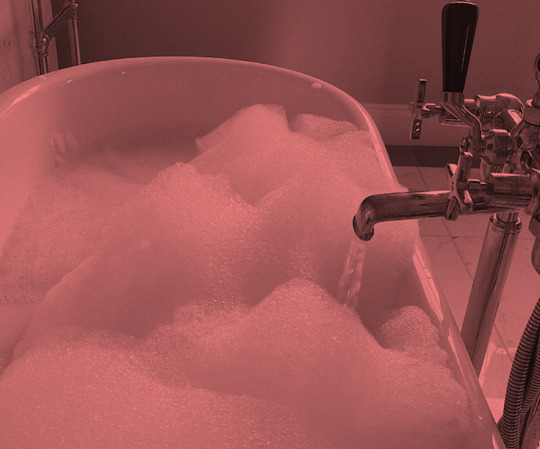
— 𝐨𝐧𝐥𝐲 𝐛𝐢𝐭𝐭𝐞𝐫 𝐥𝐚𝐧𝐝 𝐰𝐚𝐬 𝐰𝐚𝐬𝐡𝐞𝐝 𝐚𝐰𝐚𝐲

[masterlist]
hannibal lecter x will graham
rated t - 4k words
tags - au, age-re, developing relationship, hannibal loves will, little will, cg hannibal, bathtime
warnings - none!
— will slips into an unfamiliar mindset. he knows nothing except for how bad he needs hannibal, and how bad he fucking loves forests.
(pls read on ao3 if possible 🫀)
[banner by reveriesources]

Will Graham did not grow up in Michigan.
Not like that was any sort of consensus or widely held belief, though, because it wasn’t. Many times, the subject of Will’s origins either sparked passionate debates, or merely circulated as rumors. A woman from the intelligence branch vehemently asserted that his accent was distinctly ubiquitous; thus, he grew up across several states and developed the default American lilt. A man from the services branch said he carried himself in such a way that connoted what he dubbed as white-trash DNA (even though Will swore to God he heard that line used in Joe Dirt). Clad in thrift store aesthetics, with fishing as his sole hobby, he surely came from a state with far different culture than Virginia.
Curiously, nobody ever bothered to ask, which was the remarkable thing. They figured Will wouldn’t tell them if they tried, and they were right. He absolutely would not. The matter of his background was entirely too intimate and entirely too personal. He might as well tell them his exact address and then paint targets on his vital organs.
For the record, though, he did not grow up in Michigan, New York, or Idaho. His formative years were spent in many places but he was born in and spent the bulk of his childhood in the backwoods of Louisiana, with the snakes and ‘gators and muskrats and loblolly pines that made bushes in Heaven (as his father used to say).
He lived in a ramshackle shack in Hammond with his father and the few friends he made at school (those friends being the only friends he’d make across all schools he would ever attend. He left his social life sitting in the boatyards somewhere in Wisconsin). He got to school by seven in the morning, and class started at eight. There were three classrooms, one for ‘stories’, one for ‘letters’, and one for ‘numbers’, which was their equivalent of history, English, and mathematics. Will was what they would consider a sufficiently educated student. He could read Oliver Twist sooner than any of his classmates could, but he couldn’t socialize as well, couldn’t play rugby or kiss a girl (or a boy, for that matter).
After one lethargic and muggy night, hotwiring cars and chugging beer, he had retreated to the sticks behind his house to decompress, a moment of sheer desperation and experimentation. He found it was the last place he’d ever felt he belonged in.
It didn’t take him long to teach himself the names and classifications of all the remarkable flora and fauna of the bayou, but that was before he went into criminal science. Crawfish, bluegill, the elusive nutria, and the stately American alligator all became members of his zoological repertoire. The blue herons who pierced the northern sky with their elegant wings and pointed beaks. The boars who squealed and thundered across the brush. Will could identify and spell each of their names, tell you their unique behaviors, along with at least one assorted fact about them— he couldn’t make a career off of that, though, so he dropped it. Grew out of it like a ratty hand-me-down cardigan.
The bayou, for all of its danger, made Will feel safe and childish. Childish . That was the kicker, because he didn’t need those support mechanisms in his adult life. A hefty dose of Klonopin, sure, but that was it. Forever. He no longer needed all the things he might have needed as a boy. He ignored the urge to drive down to Louisiana and- he dared not to say it- play . He especially neglected the playful tug at his wading pants while he was river-fishing. He didn’t need those things. He didn’t. He smothered them with a pillow until they stopped struggling.
(He came to learn that his brain had no jurisdiction over his heart, and when his heart was telling his legs to move in the direction of the secluded forest that hugged the riverbanks, well, that’s a far greater force than any gross motor skill).
His father used to berate him for his filth when he returned home after his little outings, but it was always with a degree of fondness and was nothing compared to the prejudice he faced at school, even from his friends. Smelling of bog water and humidity. His father, probably, was used to the aroma. It was his house too, after all. Now, though, Will was bigger. He could take a shower and wash his clothes and it would all be fine, even if that didn’t ring true during his younger years. He didn’t need somebody else to do those basic things for him, to lead him by his hand until he could walk on his own; to run through the forest was enough, to laugh like he did when he was eight and thriving and ignorant to his plight, even if he did feel it creeping in.
You can only ignore your heart for so long. The strange instincts you didn’t know you had.
He was putrid, for a lack of better words. Dirt caked his pants and face and tangled in his hair, strands plastered to his forehead with sweat. He could , theoretically, clean himself up. Go right home and handle this like a big boy, like an adult, which is (ironically) exactly the same sentiment that landed him on Hannibal Lecter’s doorstep like a stray dog.
“Will?” Hannibal says, dressed in one of his more casual suits (casual being a comparative word. He is always done up in his most impeccable dress). It’s three in the afternoon and the sun is sizzling above, only accentuating Will’s musk; Hannibal notices as well, and his nose scrunches unpleasantly despite himself. Will briefly notices that Hannibal seldom emotes so vividly, but the observation seems as though it’s only being broadcasted to him, rather than conjured up in his own mind
“Is everything alright?”
Will only hums and rocks back and forth on his heels, hands wringing the bottom of his shirt anxiously, beads of sweat sweltering on his temples. Hannibal watches him with a sort of knowingness that feels contemplative, experimental. Will is only able to tell this by the way Hannibal’s eyes glaze over and he seems to look straight through Will as if he were a specter. This isn’t the first of these occurrences, either; Will has slipped into a more youthful mindset accidentally only twice before, once at a crime scene and once at Hannibal’s office. Where the world seems bigger and Will seems far, far smaller. In a way, it comforts him. In that same way, he is terrified.
“You look disheveled,” Hannibal says, and his tone is less chastising and more alarmed, perhaps impressed at the absurdity, perhaps concerned. “Why don’t you come in?”
Will nods and ambles past Hannibal into the foyer, immediately intimidated by the openness. Simple, compact spaces always brought Will comfort. He’d feel enclosed like each wall was an angel extending to him their protection. In a space as grand and vast as this, he feels exposed. Hannibal comes up beside him and wraps an arm around his shoulders, as unexpected as it is grounding.
“Come,” he soothes, guiding him into the considerably smaller dining room- it’s still magnificent, but the ceiling is lower and there’s more to fill the negative space. Chairs and fireplaces and vases lined along the wall, paintings dotting the space above. Hannibal leads him to a seat at the end of the table and sits him down; Will breathes a sigh of relief at not having to decide where to sit, or what is appropriate, trivial a matter as it is.
“‘M makin’ your chair all dirty,” mumbles a displeased Will once he’s squirmed into being comfortable. Hannibal leans over him, producing a handkerchief and wiping away a smudge of mud from Will’s cheek.
“Chairs can be cleaned. Besides, you seem distressed. Do you care to tell me what happened?” He takes a seat perpendicular to Will, arms folded on the table, back straight. Ever so perfect is the good doctor.
“Was… in the forest,” Will says, tip-toeing around the word play because people like Will simply do not play. What was I doing, then? “And, and I don’t… I can’t-”
“Would you like me to help you clean up?”
Will gnaws an angry bruise into his lip, his green eyes boring apprehensive holes into his lap. One part of him- one that’s big and broad- says that he’s wasting Hannibal’s time, this is unprofessional, this is embarrassing, and a perversion of his time. The other- much smaller and meek- just wants to be clean, and for a bygone reason, wants Hannibal to be the one to assist. Maybe it’s Hannibal’s professional status as a therapist that exudes an impression of compassion and care, something parallel to paternity. Instead, maybe it was Hannibal’s unique understanding of Will that invited him to bare his throat, his mind, his insides. He nods, and Hannibal returns it. His fate is sealed.
“Very well. Come with me. Have you a change of clothes?” Hannibal asks, letting Will trail behind him up the tall, curling flight of stairs. A red and golden carpet is sprawled down the length of the stairwell, following its curve. Will shakes his head and grabs a handful of Hannibal’s blazer rather than the railing, surely wrinkling the expensive wool. If Hannibal minds, he doesn’t show it.
The space between his mind and the world is where he has curled up and built his temporary solace. It’s blurry inside, and Will has to hang on tight to his surroundings in reality; ornate light fixtures hanging from the ceiling and antique paintings with macabre themes, boasting opulent golden frames. His penchant for music seeping into his interior design, with sheet music scattered about in a decidedly orderly manner as if he had purposefully tried to replicate the chaos of a mess.
The observation is gone as soon as it comes, like second nature, and Will can let it be washed away by the calm stream of his thoughts, for it is too hazy in this depersonalized state of his but hazy like a sauna. Warm and bare.
The bathroom door flings— no, is gently pushed— open and Will is relieved to not be immediately blinded by fluorescent lamps and bright tile. It’s paved in dark marble, while Victorian-style arches and moldings adorn the walls and ceiling, as intricate as their counterparts in the foyer. The fixtures seem vintage, gold and shining, and the countertop is a deep mahogany. A freestanding clawfoot bathtub sits at the end like the fountain of youth. A receptacle for indulgence.
He’s especially grateful for the dim, gentle lighting as if he is having his cheek tenderly caressed rather than battered and bruised. A lavish robe hangs from a hook beside the counter.
“Come now,” prods Hannibal, coaxing Will into the bathroom. Will saunters in nervously, and Hannibal brushes past him, retrieving a towel from the cabinet and laying it on the counter, smoothing it over with his hands. Will collapses onto the toilet seat— he’s overheating in his clothes, the fabric is too thick and heavy, and his skin oppresses his bones, threatening to rend him to the ground. His breathing picks up pace and he squirms uncomfortably, beginning to punch at his arms weakly.
Hannibal’s voice pierces through the fray. “Do you need help getting undressed?”
Will whines and curls in on himself; his hair is too dirty, unpleasant and sticky on his head, he feels too big for his skin, he isn’t used to the smell in here, and his head is caving in on itself– he fears his bones may bulge through his skin and tear free. He thinks he may die. He’s pretty sure he’s dying.
Suddenly, though, he isn’t, and instead he’s having his wrists restrained by either of Hannibal’s hands and he’s crouching beside him, careful not to make eye contact. Like a dam, keeping everything in, gentle yet formidable. He keeps it all in . Hannibal is taller than Will, if not just by an inch or two, but the slight difference in proportion is just enough to make Will feel small. Or maybe he’s imagining that. Right now, it doesn’t matter which.
“I know you are nervous, Will,” Hannibal hushes, thoughtful to control his tone of voice. “But I need you to use your words, alright? I cannot help you if you do not tell me what you need.”
Will nods, and Hannibal wipes away the tears that Will hadn’t even noticed had ever formed.
“I need help,” Will mumbles, hardly even audible. Hannibal graciously settles for this answer with nary a frown and slots his hands under Will’s armpits, pulling him to his feet. The green field jacket is shucked off first and falls stiff to the floor. Then comes his olive button-up, carefully unbuttoned and discarded along with his coat. Will begins to fidget when Hannibal unclasps his belt.
“No need to be anxious,” Hannibal says. “You are safe here. Nobody is going to judge you. We’re going to get you cleaned up, alright?” He places a careful palm against Will’s cheek. He’s testing the waters– has been all night. Drawing the line in the sand a bit closer each time the waves wipe the last one away. Will isn't sure where he stands. He can only hope Hannibal will help him figure it out. “Won't that feel nice?”
“Yeah,” Will easily agrees, and lets Hannibal remove the rest of his clothes (he catches a subdued sneer at the khaki color of his chinos, and doesn’t quite blame him. He isn’t known for being the best-dressed man in the world).
“There you are,” Hannibal remarks, and deposits the pile into a nearby hamper. “We can clean those later, alright? Wait here while I run the water and find something for you to wear.”
“You’re leaving?”
Hannibal smiles reassuringly. “I am, but only for a moment. Should you require me, you need only call. I’ll be here.”
Will is left alone with the bubbling, dated sound of the faucet as it fills the ceramic to its brim. He hears the distant creaking of old floorboards, the hum of the water heater. For such an extravagant house, it has touches of real, common humanism in its walls. A thin thread that connects Hannibal to every other person on the planet, as detached and withdrawn as he sometimes likes to act. Will’s hands are folded in between his knees, and he’s leaned forward a bit as he waits for Hannibal to return. He feels warm, peaceful, cared for, and a trifle exhausted. Discontent. What is it that’s holding him back?
When Hannibal returns, a pair of ambiguous silk pajamas are draped over his arm, and he places them atop the towel delicately. They’re a muted beige and capture all of the light in the room, little as that quantity is. Nicer than anything Will would choose to wear. Hannibal turns off the faucet and the warm water falls still, steaming gently billowing in the air. Droplets of water periodically drip from the faucet.
“Do you need me to help you in?”
Will doesn’t think his legs would support him if he so much as tried to stand on his own. He runs the heel of his palm over his eye tiredly and stretches his arms expectantly towards Hannibal. Hannibal gives him an affectionate smile and guides him into the bath.
Will is used to the thrumming of high-pressure water against a tile basin. Will is used to heavy, exerted breathing as the heat fogs up the space, and suddenly enclosed areas aren’t as comforting as they are entrapping. Here, though, he is being tenderly delivered into the warm water and sinks into it, fighting the beckoning pull on his eyelids. It’s like he’s being lulled by a soothing, benign god of luxury and sleep.
“There you are,” Hannibal muses, and takes a seat on a stool beside Will’s head. “Just relax. You’re alright.”
He retrieves a red loofah and onto it squirts a quarter-sized dollop of body wash, an unobtrusive fragrance of pine. It’s nothing like Hannibal’s own scent, but Will isn’t in the right mindset to be suspicious about why Hannibal already owned soap that was so uniquely Will, tailored to his likeness. Curious, maybe. Is it okay to be curious? As he’s about to bring the loofah to Will’s skin, he hesitates.
“Loofahs encourage circulation and exfoliation on the skin,” he explains after a brief moment of silence. Will tilts his head. “Alternatively, they’re breeding grounds for bacteria. That’s why I replace mine regularly.” He extends it to Will, who touches it tentatively.
“However, the material can be very scratchy and harsh. Do you feel?”
Will rubs a leaf between his fingers and immediately recoils, scrunching his nose. Hannibal removes it at once, but not before he submerges it under the water to rid it of its contents.
“Very well.” He leaves it on the rim of the tub. “Would you like me to find something else?”
They cycle through rags and sponges, different textures and materials, until they settle on a washcloth that's just plush enough to not irritate him, but stimulating enough to remind him of where he is.
Pleased to have pleased Will, Hannibal runs the cloth up and down the length of Will’s left arm, then the right, asks him to prop his right leg up on the rim of the bath, and then the left. Drags it about his stomach, his thighs, and the sensitive parts of his neck that make Will need to suppress a giggle.
Will doesn’t feel like talking about why he was playing in the woods in the first place, why he keeps whining instead of speaking clearly, why he feels so spoiled and idle, all in the body of a grown man; Will Graham, to be exact, to whom life did not afford such luxuries. He especially did not want to discuss why he sought out Hannibal specifically, or why Hannibal was so immediately receptive. And so he didn’t, because he didn’t need to. For once, by God, he didn’t need to.
“I know it’s uncomfortable for you,” Hannibal says as he tilts Will’s head back and pushes his hair away from his face, letting a glass of water cascade through it. (He always had a special way of reading Will’s mind, and it’s always impressive before it becomes just short of uncanny). “Being dirty, and then wet, all in somewhere unfamiliar. Clothes you’ve never worn, scents you’ve never smelled. But I assure you, you’ve got nothing to worry about here. There is nobody that needs saving. Nothing that exists outside of this room.”
He rakes his hands through Will’s curls, fingers catching on dense locks and tight knots. Will leans into his grasp, shoulders resting against the back of the tub. He doesn’t register Hannibal rinsing out the shampoo and then the conditioner, nor a gentle tapping at his bicep.
“It’s time to get out now, Will.”
Will whines.
“Don’t be petulant. Come now, let’s get out.”
“Don’t wanna leave,” Will says tiredly, hardly pronouncing his vowels.
“The tub or the house?”
“House,” he yawns.
“You can stay in my home for as long as you’d like, Will. I just need you out of here, okay? Could you do that for me?”
Will nods slowly, wishing he could fall asleep here and be done with it. But Hannibal is making a request of him, and he’s already burdened him so greatly, both in this night and in generally dragging him into his own issues; he shouldn’t reject him. He doesn’t know why, but he knows he shouldn’t, either out of moral obligation or out of fear of slipping further into whatever this was. He never cared before about whether he came off as rude or impolite.
Granted, though, that was before, and before he wasn’t being bathed by his psychiatrist while he had mini-meltdowns.
He allows himself to be assisted into standing and then dried off from head to toe with a plush microfiber towel, exquisite and soft. Will could drown in the sensation. The water in the tub is murky and brown as it swirls down the drain. Hannibal doesn’t bother to ask Will if he needs help dressing himself— he needed help the last several times, after all— and takes the liberty of doing it for him, buttoning up his top and slipping on his bottoms, long and loose and airy. Cold against his skin. They're a bit big on him— Will wonders if this was on purpose— and hang off of his frame, giving the impression of a child playing dress-up rather than an adult clad in their own bedtime garb.
Hannibal meticulously dries his hair, pausing occasionally to comb through it with his fingers and fluff it back into place. Unnecessary, time-consuming. Will basks in the strange sensation of being worthy of such attention.
He remembers very little of the rest of the night, save for Hannibal leading him down the hall and into a room with a large bed in the center, being sat on the edge, feeling as if he craved something he could not yet have. Feeling the exhausted arms of his heart reach for Hannibal as he bid him good night and disappeared. He left the door cracked and a sliver of light spilled through. Will had never been so afraid of the dark before.
When he wakes, his clothes are folded neatly on the nightstand and his shoes are waiting beside the front door, all impeccably cleaned as if he had bought them brand new. He gets dressed and leaves before he can smell breakfast wafting through the many rooms and it’s midnight when he returns home, for he had spent several hours driving in a straight line. He’d stop for gas, keep driving, run out of gas, and the cycle would repeat until the large Tennessee Welcomes You sign bid him back to reality.
His dogs sniff him curiously, his feet and his legs. He no longer smells of fish and offensive cologne; rather, soft pine and woodland, something that would sit on the highest, highest shelf at Bath & Body Works. Something Will likely wouldn’t choose for himself but suited him anyway.
Will almost doesn't recognize his scent either, feeling foreign in his own home. He does notice, however, how his clothes and body are as clean as they had ever been. Not that Will is unkempt, reeks every day, or doesn’t take care of himself. He, most days, simply isn’t as on top of it as his peers, and especially not Hannibal. (He also seems to attract the brunt of dirt and grime like flies to a glue trap; perhaps that is why everybody around him is so well kept in comparison to him, there’s no dirt left to sully them).
He removes his work boots in a daze, hangs his coat on the hanger, and takes a seat in the center of his couch, as he absentmindedly scratches Winston’s head, or perhaps Buster, or another dog he’d (regrettably) forgotten the name of. As he lays in bed, splayed on his back and covers thrown off, he briefly remembers he has an appointment scheduled tomorrow evening with Hannibal. Dragging a hand over his face seems to be the only appropriate reaction.
They can discuss the events of the night then. Of course they can. And Hannibal will have all the answers for him and then things can go back to the way they’ve been. He can tell him he needs to get his behavior in check, stop snapping at people, and keep a handle on his sense of reality. Hannibal can tell him, and he will listen. He always does.
That comes later, though. Tonight, Will is fatigued beyond the point of comprehension and doesn’t fall asleep so much as pass out, the feeling of being pampered never quite wearing off.
#tiredmother#hannigram#murder husbands#fandom agere#age regression#cg/l#little will graham#caregiver hannibal lecter#hannigram fanfiction#will graham age regression#regressor will graham#fanfiction#annewrites
42 notes
·
View notes

